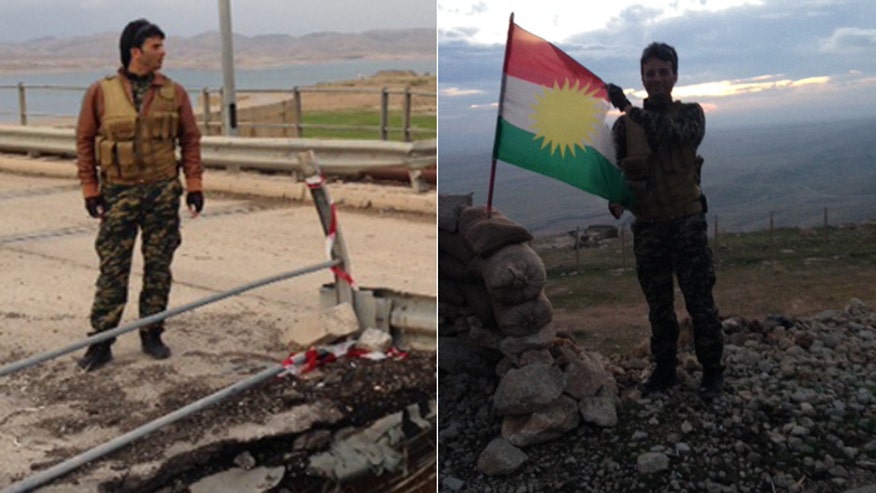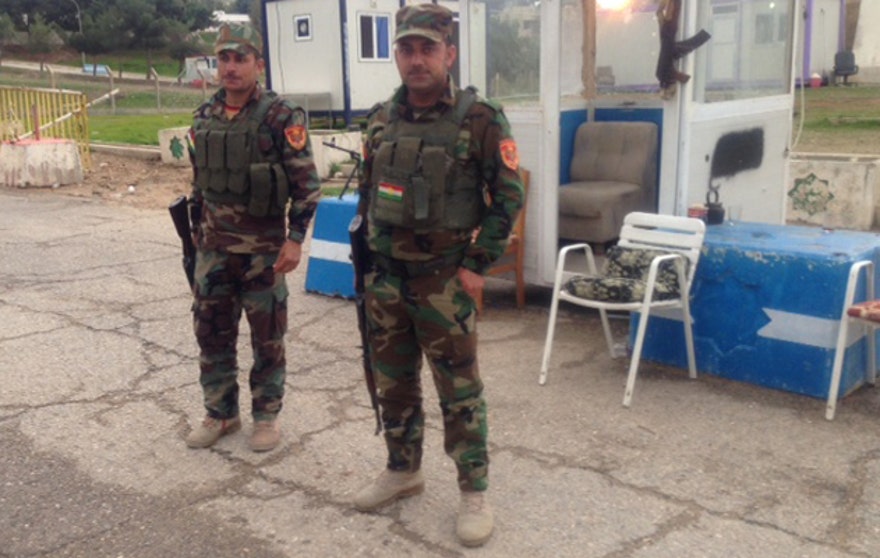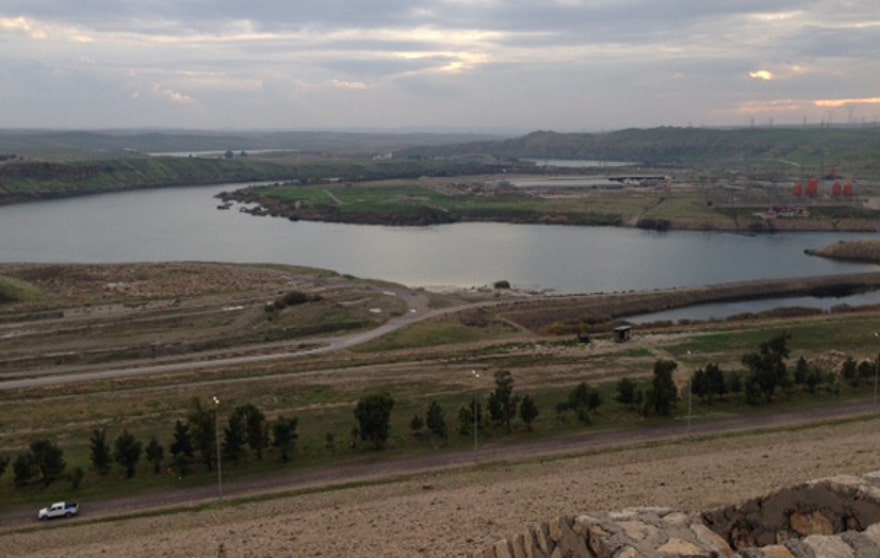Under a gloomy late November sky that dumped cold rain on their frontline fighting position overlooking Mosul Dam, some 16 Peshmerga fighters mustered around a small hut – the only visible means of protection from enemy fire – while others hovered around a small campfire for warmth.
Just hours earlier, the road leading into the Kurdish army's base was hit by artillery from Islamic State – or “Daesh” as it is known in the Middle East, forcing some closures. But the fighters were calm and collected – sharing jokes and cigarettes ahead of another long and cold night protecting their cherished land in the northern part of this embattled land.
 |
| At left, a Peshmerga fighter examines the damage from ISIS artillery hitting close to their frontline position near Mosul Dam. At right, another proudly displays Kurdish flag. (FoxNews.com) |
“Now we know their key points and from where they try to attack us. It’s weather like now – the fog – over them that allows them not to be seen by the planes,” one high-ranking Kurdish Regional Government (KRG) official, who left an office job to fight on the frontlines with the Peshmerga, told FoxNews.com in reference to the war against the jihadist army. “When it is raining, it is a good time for them to start attacking. At the beginning, the villages in Iraq were communicating and helping them attack, they shot at us front and back. But the villagers soon realized that these people were not good. They were not human.”
The Peshmerga fighters don a mishmash of camouflage clothes, and wield whatever guns they can get their hands on. Their formal training is limited, and their best attributes are instinct and will.
“We have principles. We were brought up on those principles and an innate drive to serve. We treat Kurdistan like our second mother,” explains the official, who is a high-value target and thus asked to remain unnamed. “If you do something day after day you learn and we learn how to fight very fast.”
The Peshmerga – whose name literally translates to “those who face death” – began as something of a mountain militia in the 1920s when the push for Kurdish independence began. In recent decades, they faced unrelenting persecution from the Ba'ath loyalists of former Iraqi dictator Saddam Hussein. One Peshmerga fighter told FoxNews.com they don’t suffer from “psychological issues” pertaining to combat because they have grown up around fighting and have developed an early understanding that it is “just what we have to do.” While the issue of possible PTSD garners little – if any – mainstream attention, one daughter of a retired Peshmerger fighter said at least in her experience growing up, she witnessed the mental anguishes of battle.
 |
| Two soldiers stand guard at the entry to the Peshmerga base near the Kurdistan/Iraq border. (FoxNews.com) |
The Peshmerga soldiers range from around 18 to over 70 years old, with many coming out of retirement in the quest to defeat the ISIS threat. During days of intense conflict, the Peshmerga are lucky to return to their base for two or three hours of sleep and a quick bite to eat, before returning to their fighting locus. As it stands, a majority of fighters are not soldiers but what they call “security advisors.” They don’t take a salary and have volunteered simply out of devotion.
 |
| The back side of the Peshmerga fighting position, near Mosul Dam. (FoxNews.com) |
“There is a Special Forces that has been arranged for these people that have come in, they don’t register their names and don’t sign contracts. They just want to serve Kurdistan,” the official said.
Due to a limited supply of weapons, volunteers often have to bring their own firearms – usually a basic AK-47 – with the M4 and M16 rifles, BKC—an Iraqi clone of the Soviet PKM machine gun – and the DshK heavy machine gun, called the “doshka” in Iraq, being the staple weapons used in the battle against much better equipped opponents.Read the rest of the story HERE.
If you like what you see, please "Like" us on Facebook either here or here. Please follow us on Twitter here.




No comments:
Post a Comment